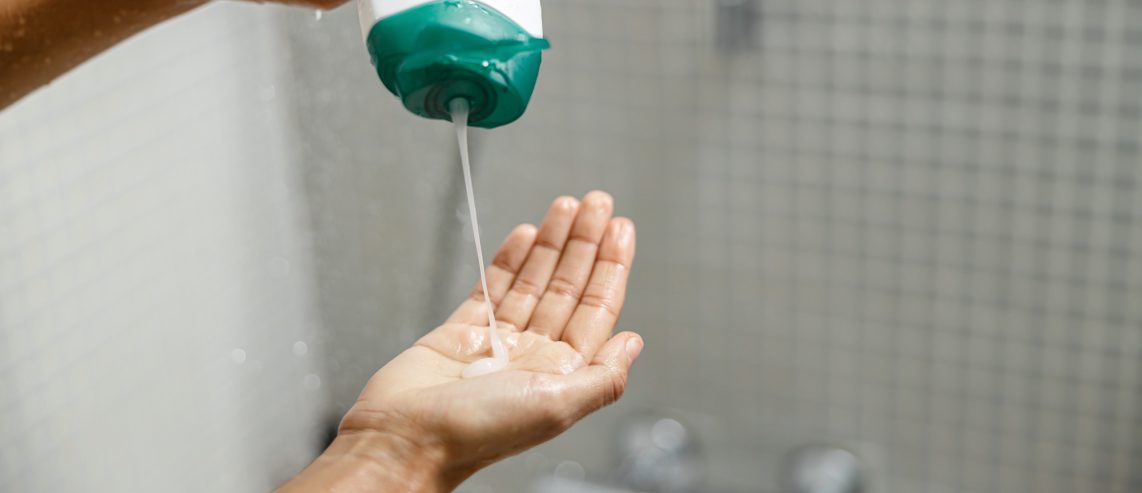If you’re like many Americans, you take a shower every day. But is that necessary? Would showering less often be better for you?
The short answer is: It depends. Read on for the details about how often — and how — you should shower.
How Often Do You Need to Shower?
There’s no one-size-fits-all answer. How often you should shower depends on your physical activity, your age, your occupation, and any medical conditions you may have.
Not everyone needs to shower every day. On the other hand, showering once a week might be pushing the limits of good hygiene — and manners.
For many people, the psychological benefits of showering every day override other considerations. In the morning, a shower can help you feel refreshed and ready to start the day. Likewise, a warm shower can help you wind down in the evening.
Never Miss a Beat!
Subscribe to Our HealthBeat Newsletter!
Thank you for subscribing!
You can now select the specific newsletters you'd like to receive.
You are already subscribed.
Subscribe to more newsletters in our email preference center.
Sorry, an error occurred. Please try again later.
Get Healthy Tips Sent to Your Phone!
Pros and Cons of Daily Showers
A daily shower usually doesn’t cause any major health problems, but it does have some pros and cons.
Pros
A daily shower removes dirt, sweat, and allergens from our skin. And of course, it gets rid of unpleasant body odor.
Showers can also help you wake up. For many people, a daily shower is as essential as a cup of coffee in the morning. A warm shower can also calm anxiety, ease muscle aches and pains, and increase blood flow.
Certain skin conditions benefit from frequent showering. When too much oil builds up on the skin, it can make acne, dandruff, psoriasis, and eczema worse. Showering can also help alleviate allergy symptoms by washing allergens away and clearing congestion of your skin pores.
There’s even some evidence that ending your shower with cold water every morning can make you healthier overall. In a recent Dutch study, some participants finished their daily shower with a short blast of cold water. Those who did had nearly one-third fewer sick days than those who took completely warm showers.
Cons
On the other hand, showering every day can be too much of a good thing.
In addition to dirt and sweat, our skin has a layer of oil and “good” bacteria on the surface. The combination of hot water and soap can strip those protective elements away. Getting rid of these defenses may weaken your immune system by allowing hardier bugs to flourish.
Another con: Skin can dry out from frequent showering, especially in the winter. Cracks in the skin are painful. They also allow bacteria and allergens to penetrate the body and possibly cause infection.
Using harsh bar soap every day also contributes to dry, cracked skin. “Using scented soaps and shampoos also can worsen eczema and other allergic skin conditions,” says Benjamin Carnahan, MD, of Valley Family Medicine-UPMC.
Showering Age-by-Age
Your age and lifestyle are major factors in how often you need to shower. A nine-year-old child, for instance, probably doesn’t need to shower as often as a 40-year-old marathoner. Here’s an age-by-age breakdown.
Babies
Your baby will take a bath instead of a shower, but that doesn’t mean you should overdo it. A baby’s delicate skin can get irritated from too much time in the tub. The American Academy of Pediatrics suggests that three baths per week is plenty for the first year.
In between baths, caregivers should pay special attention to the diaper area and any other folds in baby’s skin. Cleaning with a damp cloth or baby wipe should do the trick.
Kids
Like infants, younger children don’t necessarily need a bath or shower every day. They don’t get very sweaty, and their skin can dry out from too much time in water. The exception: If your child is doing sports, swimming, or playing outside getting very dirty, they’ll need to shower more often. “Children participating in “mat” sports such as gymnastics, wrestling, or karate should always shower after each event to remove bacteria and fungus they may have received from the mat itself,” adds Dr. Carnahan.
Teens
When the hormones of adolescence kick in, so does body odor and oilier skin. Your teen can benefit from a daily shower, but there’s no need for anything beyond that. (Some teens become fixated on cleanliness and want to shower two or three times a day.)
Adults
If you work out daily, you should shower every day. Likewise, if you a lot of time outdoors, or work with dirty or toxic materials, a daily shower is in order. Otherwise, most adults can skip a day in between showers with no ill effects.
Seniors
Your skin produces less oil as you age. Older people, especially those who are less active, don’t need to shower as often. Twice a week may be enough, especially if you clean your groin, armpits, and feet with a warm washcloth daily between showers.
Tips for Keeping Your Skin Healthy in the Shower
No matter how often you shower, you should pay attention to your skin. If it feels dry, tight, or itchy, you may be showering too often or for too long.
Here are some ways to keep your skin clean — and healthy.
- Limit the length of your shower. You should aim for no more than 10 minutes in the water. If you shower every day, shoot for three to five minutes.
- Close the bathroom door to trap humidity. Moist air may help keep your skin from drying out.
- Use lukewarm, not hot, water in the shower. Hot water dries skin out, especially in the winter.
- Use a mild soap. A gentle liquid cleanser is a good choice. Use the smallest amount possible to clean yourself.
- Skip antibacterial soaps, which can kill off the “good” bacteria you need to stay healthy. (Using antibacterial soaps may even contribute to antibiotic resistance, a growing worldwide health problem.)
- Spend most of your time on your underarms, groin, and feet. There’s no need to scrub every inch of your body, unless you’re truly dirty from work or outdoor activities.
- Go easy on fragrances. Scented soaps may dry out your skin and worsen eczema and skin allergies.
- Don’t shampoo every day, even if you shower daily. Unless your hair is very oily, every other day is usually enough.
- Pat your skin gently dry instead of rubbing vigorously with a towel. Too much friction can irritate your skin.
- Moisturize immediately after every shower to trap moisture in the skin. Choose cream instead of lotion (it’s thicker and more effective). Look for ingredients like jojoba oil, lanolin, mineral oil, shea butter, and glycerin.
Sources
CDC, Hygiene of the Skin: When Is Clean Too Clean? Link
CDC, Frequent Questions About Hand Hygiene, Link
American Academy of Dermatology, Dermatologists' Top Tips for Relieving Dry Skin, Link
American Academy of Dermatology, 8 Ways to Stop Baths and Showers from Worsening Your Psoiasis, Link
Harvard Health, Showering daily — is it necessary? Link
American Academy of Pediatrics, Bathing Your Baby, Link
National Library of Medicine, The Effect of Cold Showering on Health and Work: A Randomized Controlled Trial, Link
About UPMC
Headquartered in Pittsburgh, UPMC is a world-renowned health care provider and insurer. We operate 40 hospitals and 800 doctors’ offices and outpatient centers, with locations throughout Pennsylvania, Maryland, New York, West Virginia, and internationally. We employ 4,900 physicians, and we are leaders in clinical care, groundbreaking research, and treatment breakthroughs. U.S. News & World Report consistently ranks UPMC Presbyterian Shadyside as one of the nation’s best hospitals in many specialties and ranks UPMC Children’s Hospital of Pittsburgh on its Honor Roll of America’s Best Children’s Hospitals. We are dedicated to providing Life Changing Medicine to our communities.

